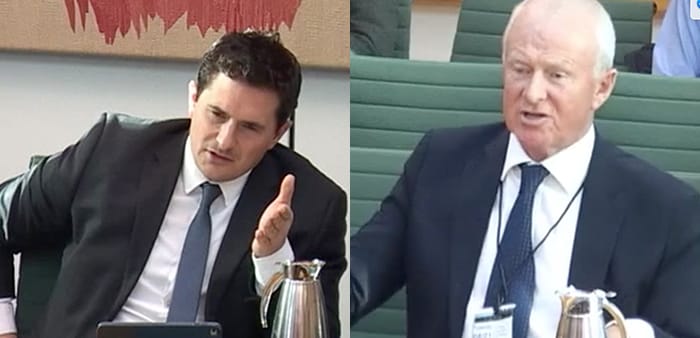Tense committee session pits Iraq torture lawyer against parliamentarians

A Conservative MP, Johnny Mercer, who has served in the British Army, accused Martyn Day, the lead partner at Leigh Day, of dishonesty in yesterday’s session of the Commons’ Defence Select Committee where Day was giving evidence.
In one of many dramatic exchanges in relation to legal claims against the British Army arising out of the Iraq War in 2003, Mercer said to Day: “I know you have been dishonest”. As the allegation is protected by the rules of parliamentary privilege, Day reposted: “I would like you to go and repeat that outside of this building.”
Day’s firm, Leigh Day, had brought hundreds of claims against the Ministry of Defence in relation to alleged torture during the Iraq War by British soldiers. Subsequently, the 2014 Al-Sweady inquiry examined the way in which these claims were brought and found that specific claims relating to the alleged murder of Iraqi civilians were fictitious.
During an intense examination of Day’s legal practices, his principles, and, it appeared, underlying these, his patriotism, Mercer repeatedly referred to Day as “people like you” who are “clever at this”. He said: “you come here and make these allegations… which are a complete work of fiction.”
Mercer pressed on arguing that Day had “completely destroyed” British soldiers’ lives “with apparently no concern whatsoever” and that he was “deluded”. He asked Day: “are you proud of the lives that you have ruined?” To which Day replied: “I am proud of the system that we represent and the rule of law. The rule of law means that soldiers will have to give evidence: it is tough for them as it is tough for anybody else.”
Following the Al-Sweady inquiry, in 2017, Day and two other solicitors at his firm were investigated by the Solicitors Regulation Authority (SRA) for misconduct but were cleared of allegations brought in the disciplinary tribunal and subsequently in the High Court. Mercer’s accusation of dishonesty on behalf of Day was not found by the SRA.
The committee was meeting to hear evidence on how former service personnel can be protected from investigation for events in the past and whether or not there should be a statute of limitation on claims against British soldiers. Day’s evidence was that there could be some form of limitation for less serious incidents.
For the latest news, commercial awareness insight, careers advice and events:
Sign up to the Legal Cheek Newsletter